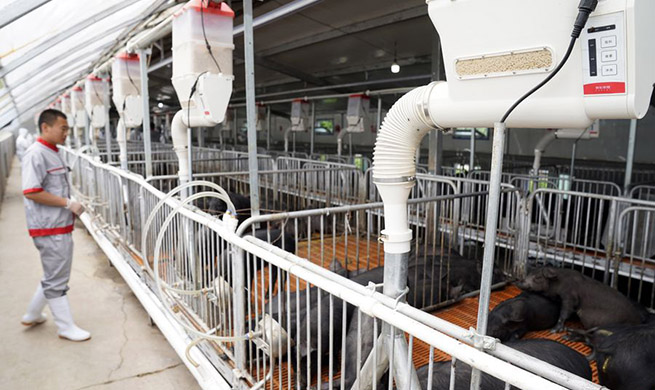NANJING, Dec. 8 (Xinhua) -- Researchers have developed a "cocktail therapy" to control bacterial wilt disease by blending viruses together to selectively destroy the pathogen.
Bacterial wilt disease is mainly caused by Ralstonia solanacearum, a bacterium that is common in soil. More than 400 plants, such as tomatoes and peanuts, can be infected with the disease, causing economic loss.
Chemicals and fumigation are often used to control plant diseases, but only provide temporary relief from the disease. The pathogen can develop resistance to the chemicals and healthy soil microbes can be disrupted. The following outbreaks may become worse.
Researchers from China's Nanjing Agricultural University, Utrecht University in the Netherlands and the University of York in Britain developed a new approach to control the plant disease with bacteriophages.
A bacteriophage is a virus that infects bacteria and has been proposed as an alternative to pesticides to kill bacterial pathogens of crops.
They selected four bacteriophages that can infect Ralstonia solanacearum and isolated more than 1,000 strains of Ralstonia solanacearum in four Chinese provincial regions. They then tested different combinations of bacteriophages against the bacteria.
According to the research published in the journal Nature Biotechnology, increasing the number of bacteriophages in combinations decreased the incidence of bacterial wilt disease in greenhouse and field experiments, and the remaining bacteria grew much slower.
The researchers explained that bacteriophages of Ralstonia solanacearum had no effects on the other 400 strains of bacteria in the soil. By precisely killing pathogens, bacteriophages allowed healthy soil microbes to recover, enhancing soil's immunity to pathogens.
They said the study provided proof that specific bacteriophage combinations have potential as precision tools to control plant pathogenic bacteria.

















